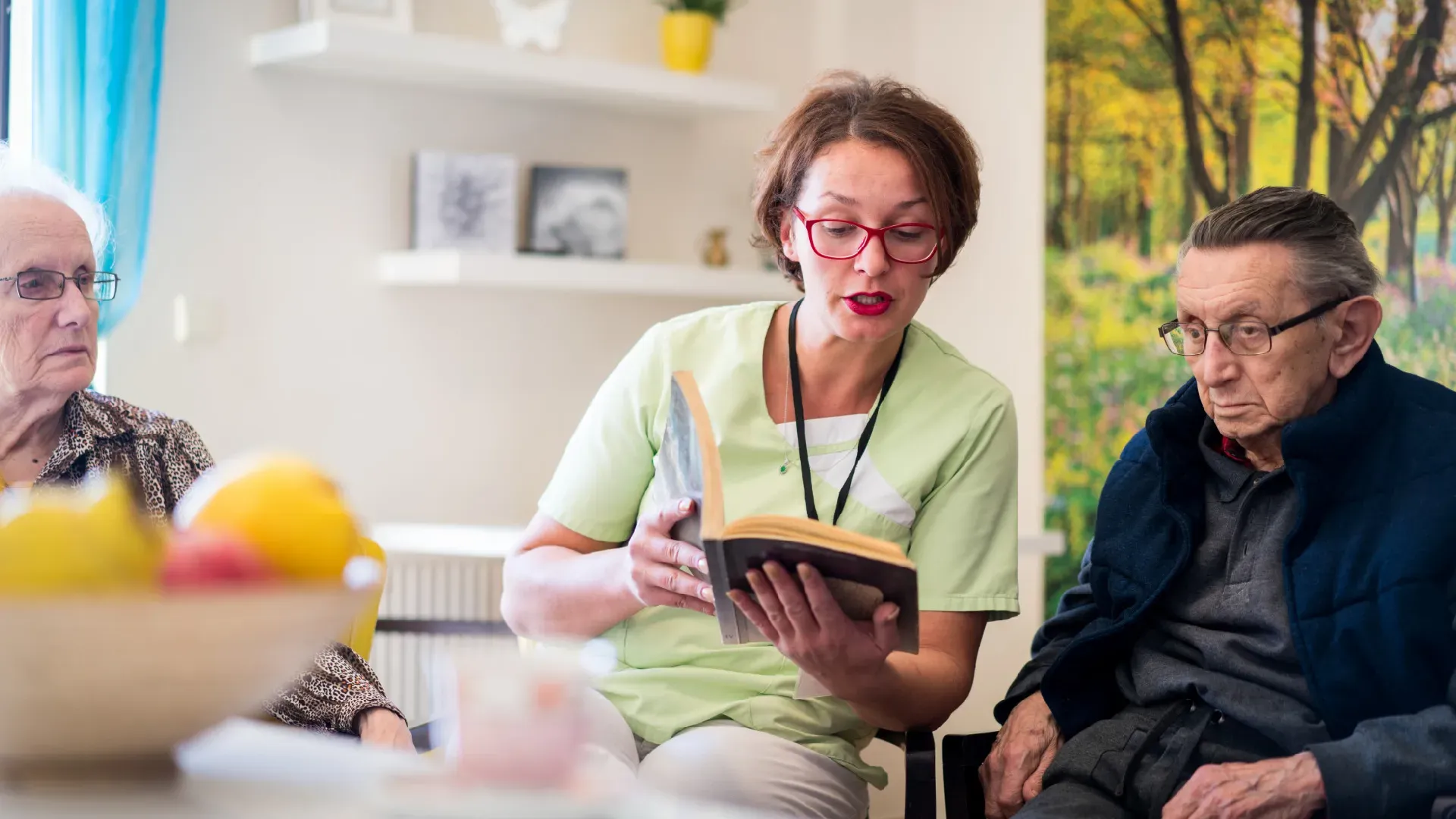The Essence of Graceful Aging: Arise Care Staff's Commitment to Professionalism and Integrity
In our pursuit of graceful ageing, we recognise that it's not just about adding years to life, but adding life to those years. Arise Care Staff embodies this philosophy through our commitment to professionalism and integrity in professional aged care. Acknowledging the challenges of ageing, from mobility issues to chronic diseases affecting a significant portion of older adults, we aim to transform how society approaches elderly care.
Our focus extends beyond traditional care methods, as we prioritise personalised care plans and ongoing training and development. By integrating the ethics and integrity essential to elderly care, we ensure that each individual's journey towards graceful ageing is met with compassion and unparalleled professional support. Join us as we delve into the essence of graceful ageing supported by Arise Care Staff's dedication to making a meaningful difference in the lives of the elderly.
The Philosophy Behind Graceful Ageing
At the heart of graceful ageing lies a philosophy that transcends mere existence to embrace a full, vibrant life, regardless of age. Bobbie Casalino Lewis, in "So That's What 70 Looks Like!: The Essence of Aging Gracefully," delves into this concept with clarity and insight. Graceful ageing is not just about maintaining physical health; it's a holistic approach that encompasses a positive attitude, a sense of well-being, and an active engagement with life. This ethos aligns with the principles of Positive Aging, which advocate for avoiding disease, maintaining high physical and cognitive functions, and engaging in social and productive activities.
- Cultural Perspectives: The definition of Positive Aging varies across cultures. For instance, Japan and China view ageing through the lens of Buddhist, Confucian, and Taoist philosophies, seeing it as a sign of maturity and wisdom. This diversity enriches our understanding of ageing gracefully, reminding us that it is a deeply personal journey influenced by various factors, including cultural beliefs and practices.
- Global Demographics and Challenges: The World Health Organisation (WHO) emphasises the importance of developing and maintaining functional abilities that enable well-being in older age. With the number of people over 60 expected to reach 2 billion by 2050, the imperative to adopt a positive approach to ageing has never been more critical. This demographic shift presents both challenges and opportunities to redefine ageing in a way that celebrates life and vitality at every age.
Embracing the philosophy of graceful ageing involves a shift in mindset. It's about treating life as an adventure, finding purpose, and adapting to changes with a positive outlook. By integrating these principles into our lives, we can approach ageing not as a decline but as an opportunity for growth, learning, and fulfillment.
Professionalism in Aged Care
In the area of aged care, professionalism stands as a cornerstone, ensuring that every interaction and care plan is executed with the highest standards of patient safety, effective communication, and respect. Unprofessional behaviors, including discrimination and breaches of confidentiality, detrimentally affect both learners and patients, underscoring the necessity for a robust framework of professionalism and respectful workplace policies. These guidelines not only delineate expected behaviors but also provide mechanisms for addressing concerns, thereby fostering a culture of respect and dignity.
- Codes of Conduct and Professionalism:
- Surgeons and clinical faculty are highlighted as primary sources of unprofessional behavior, necessitating a strict adherence to codes of professionalism.
- Educational rounds, utilising case studies, play a pivotal role in identifying and rectifying unprofessional behavior.
- The disparity in power dynamics, particularly in surgical roles, calls for a heightened awareness and preparation to navigate challenging situations with integrity.
- Nursing Professionalism Attributes:
- Defined as a dynamic, multidimensional concept, nursing professionalism is rooted in caring, altruism, and adherence to principles that underpin successful clinical practices.
- Key attributes include knowledge, attitudes, and behaviors that align with regulations, principles, and standards.
- Factors influencing nursing professionalism range from educational background to active participation in professional organisations and community service.
The commitment to continuous professional development is indispensable for aged care workers, enabling them to stay abreast of industry evolutions and enhance their care delivery. Organisations like Whiddon and Concept Care underscore the significance of professional boundaries and ongoing education, ensuring that aged care workers are not only equipped with the necessary skills and knowledge but also understand the importance of maintaining professional integrity in every aspect of their work.
The Role of Integrity in Elder Care
In aged care and disability support, the principles of integrity, transparency, and honesty are not just ideals but the very foundation of trust and ethical practice. Platinum Healthcare stands as a beacon of these values, ensuring that every aspect of care is grounded in open communication and ethical conduct. This commitment lays a strong foundation of trust and credibility, crucial for fostering a positive organisational culture and ensuring the privacy and confidentiality of those we serve.
Critical Values:
- Integrity: Upholding honesty, transparency, and ethical behavior in all interactions.
- Transparency: Sharing information clearly and accessibly, including care plans and financial matters.
- Honesty: Addressing concerns or grievances promptly and effectively, ensuring sincerity in every action.
The management of ego integrity in nursing homes is emerging as a vital aspect of long-term, quality care. This involves a comprehensive assessment and intervention strategy:
- Assessment: Identifying the fulfillment of residents' basic needs, their relationships, and their life view.
- Intervention: Aiding residents in developing a positive outlook on life and maximising their functional abilities.
Moreover, dignity in nursing care, intertwined with respect and status, remains a central political theme across Nordic countries. The preservation of dignity is essential for maintaining patient integrity, which is threatened by institutionalisation and dependence. Positive relationships with health professionals are crucial for reinforcing patients' self-worth, highlighting the importance of maintaining ethical care standards to avoid violating patients’ dignity.
Ongoing Training and Development
In the field of aged care, ongoing training and development are paramount, ensuring that our staff not only meet but exceed the industry standards for compassionate and competent care. Recognising the multifaceted nature of aged care, our approach to professional development encompasses a broad spectrum of training opportunities, tailored to foster both personal growth and professional excellence.
- Comprehensive Training Modules: Our curriculum includes diverse topics such as dementia care, palliative and end-of-life care, wound and falls management, and cross-cultural awareness. These modules are designed to equip our staff with the knowledge and skills to address the complex needs of those we serve, enhancing their ability to provide empathetic and effective care.
Professional Development Opportunities:
- Fee-Free Qualifications: We offer access to Certificate III and IV courses in Individual Support and Ageing Support, prioritising groups such as First Nations people and job seekers, to ensure a well-rounded and inclusive workforce.
- Workforce Support Programs: Subsidised training and work placement opportunities are available, alongside mentoring, coaching, and access to tertiary courses, conferences, and seminars.
- Technology in Training: Recognising the challenges of shift work, geographical isolation, and diverse learning preferences, we leverage technology to make training accessible and engaging. Online modules, virtual classrooms, and digital resources allow our staff to pursue professional development in a manner that suits their lifestyles and commitments.
By investing in the continuous professional development of our staff, we not only enhance their skills and knowledge but also foster a culture of lifelong learning and improvement. This commitment to excellence ensures that our team remains at the forefront of aged care, providing unparalleled support and care to those we serve.
Personalised Care Plans
In the journey towards graceful ageing, personalised care plans stand as a beacon of individualised support, ensuring that each elderly individual's unique needs and preferences are meticulously catered to. These plans are not just documents but are dynamic blueprints for enhancing the quality of life and fostering independence among our elderly loved ones.
- Collaborative Development: At the core of personalised care plans is the partnership between the elderly person, their family, and the care team, including nurses, social workers, and home health aides. This collaborative approach ensures that the plan is reflective of the individual’s current health status, personal preferences, and long-term goals.
Key Components of Personalised Care Plans:
- Assessment and Goals: An initial assessment to understand the resident's health, wellness, and personal aspirations, followed by goal setting.
- Service Provision: Detailed scheduling of health services, rehabilitation, social activities, and dining preferences.
- Roles and Responsibilities: Clarity on who will provide what services and when.
- Monitoring and Review: Regular reviews to adapt the plan based on the individual’s changing needs, ensuring its continued relevance and effectiveness.
By prioritising personalised care plans, we not only honour the individuality of each elderly person but also empower them to lead fulfilling lives with dignity and joy. These plans are essential in identifying potential risks, scheduling necessary health services, and ensuring that care is aligned with each individual's preferences and outcomes. Through this approach, we are committed to providing a framework that supports not just the physical well-being of our residents but also their emotional and social health, thereby contributing to a more positive and enriching experience of ageing.
The Impact of Compassionate Care
Empathy stands at the core of compassionate care, enabling aged care professionals to deeply resonate with the experiences and feelings of older adults. This fundamental trait is complemented by:
- Active Listening: Essential for understanding the unique needs and concerns of the elderly and their families.
- Effective Communication: Facilitates clear, empathetic exchanges between caregivers and those in their care.
These qualities are not just beneficial; they're transformative, leading to:
- Enhanced Health Outcomes: Including reduced hospital readmissions.
- Increased Satisfaction: Both patients and families report higher levels of contentment.
However, the effectiveness of compassionate care is influenced by several factors:
- Healthcare System Design
- Provider Training
- Resource Availability
To address these variables, policies may focus on:
- Training Programs: For healthcare providers, emphasising the importance of empathy and communication.
- Patient and Family Education: To foster a collaborative care environment.
- System-Level Changes: Prioritising patient-centered care to ensure the consistent delivery of compassion.
Ultimately, compassionate care enriches interactions between healthcare providers and elderly patients, leading to a more positive care experience. This is reflected in patient-reported evaluations, particularly regarding emotional care, underscoring the critical role of compassion in the healthcare journey.
Through the exploration of graceful ageing, the indispensable roles of professionalism, integrity, and compassionate care in aged care have been eloquently highlighted. Arise Care Staff's commitment to these principles underpins a holistic approach that goes beyond addressing physical needs, emphasising a dignified, fulfilling journey into later life. The importance of ongoing training and development, alongside the tailored crafting of personalised care plans, ensures that each individual's voyage towards graceful ageing is supported with the utmost respect and expertise. These core tenets not only enrich the lives of the elderly but also set a benchmark for excellence in the aged care sector.
As we reflect on the essence of graceful ageing, it’s clear that the journey is as much about the heart as it is about the mind and body. The cultivation of a positive, engaging, and vibrant life, irrespective of age, is a testament to the power of empathy, continuous learning, and adaptability. The broader implications of these practices are profound, promising not just an enhancement of the ageing experience but also informing a paradigm shift in how society perceives and values the elderly. In this ever-evolving field, the dedication to professionalism, integrity, and compassion paves the way for a future where ageing gracefully is not just an aspiration but a lived reality for all.











